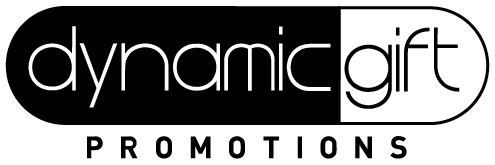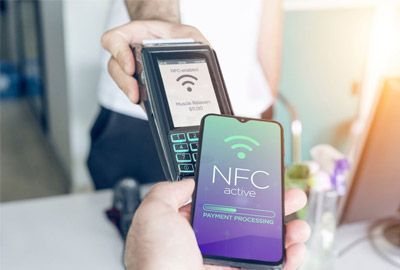Here is a guide for all of our product re-sellers out there, top tips on how to avoid promotional product scams
Unfortunately there are people looking to scam you in practically every industry. Scammers are figuring out how to bypass security features just as quick as companies are inventing new security protection. So learning how to spot a scam is extremely important no matter what kind of business you work in. The only foolproof way of protecting yourself from most promotional product scams is to be aware of what is and isn’t a scam.
No matter what industry you’re in, there will always be numerous types of scams that you will be vulnerable to, and the promotional product industry is no different. One of the most common scams in the promotional product industry is orders that are filled using stolen credit cards. The payment will go through, and the scammer placing the false order will receive the product and/or services. However, once the victim of the stolen credit card notices their money is missing, the company distributing the products will lose the money used to pay for the fraudulent order, as well as the product.
Believe it or not identity theft is also something of concern in the promotional product industry. Stealing the identity of both distributors and suppliers is something that has become increasingly common. Unfortunately there are some regions that make it easier for scammers to access confidential company information that can be used to steal the company’s identity. They can even change information so the company address become the scammers address. Pretty unsettling, right? It goes without saying that knowing how to pin point a scam is exceptionally vital in these regions.
Identifying a Scam
Unfortunately, bringing a scammer to justice after the damage has been done can be quite difficult. However, there are certain things that will give a scammer away before they have a chance to affect your business and your bank account.
We have listed some general tips and traits that will help you pick up a scam immediately:
- Do Not Open Unknown E-mails
General rule of thumb is that you don’t open e-mails from senders you are not familiar with. This is very important because sometimes it takes something as simple as opening an e-mail to give them access to everything they need to scam you. In fact, if you don’t know the sender very well, you shouldn’t open an e-mail that you were not expecting. If you think the e-mail may be legit, contact the company or customer to verify the e-mail before actually opening it.
- Never Open Spam
Replying to spam is always a bad idea because most of the time it leads to either a virus, spyware or worse. So if it looks like spam you shouldn’t even bother opening it. Be sure to explain all of this to your employees. It does no good to just assume everyone knows that’s not a good idea.
- Pay Attention To Punctuation and Grammar
Most fraudulent e-mails that are sent with the intention of scamming you will have poor grammar. Sometimes the mistakes will be subtle, and sometimes they will be extremely obvious. So if you’ve already opened the e-mail and you’re questioning whether or not the e-mail is genuine, study it for grammar and punctuation errors. People that run respectable businesses and companies want to be professional. So sending a simple e-mail with grammar mistakes is rarely something any established company would allow.
- Be Cautious With Large Orders Placed Online
Anytime someone new to your customer base places an order online you should be extremely cautious and take extra security measures. A very large order of various different products (or an abnormally large amount of one product) is a red flag that it is a scammer. They want to make a large order at once because they know they will most likely not be able to order from that place again, among other reasons.
- Never Trust Anyone Asking For Personal Information
Don’t ever give personal information about you or your bank in an e-mail. Any establishment that requires personal information from you will never try to acquire it through an e-mail because they are aware of the security risks. So never divulge any important information to anyone that asks for it via e-mail.
- Devise Your Own Personal Security System
You should sit down and create a list of certain steps you take to ensure the security of you and/or your company. Make sure all of your employees are completely familiar with your personalized company security rules. That will reduce your risk of getting caught in a scam. You should also make copies of the security steps that you want followed for all of the employees in your company. That way you know everyone knows the security procedures. You can do things like enabling encryption on your e-mail account, keeping your anti-virus up to date, never leave a window with personal information open longer than you need to, and anything else you can think of that may be helpful.
- Always Question An Order Going to a Personal Address
If a customer places a large order and requests it to be delivered to a home address, consider this a red flag as well. It is very rare that someone will place a large order for their company or business, and have it shipped to their home. Now that doesn’t mean that it can’t happen with an honest customer, but you should always take extra safety precautions.
- Verify The Authenticity of All New Companies
Anytime you gain a big company client you should do some research on their company to make sure it is not a fraudulent company with a bad reputation.
- Always Double Check Customer Information
Always check to make sure the phone number and address coincide with the address and phone number on the company’s web site. If it is different do not proceed with the order until you get things cleared up.
- Check All New Credit Card Accounts
Always research new credit card accounts to make sure they are legitimate. Most scammers use credit cards, so it is important that you do this with all new customers.
- Beware of Common E-mail Addresses
If the customer claims to be a big company or business, but has a common e-mail provider like Hotmail, msn, yahoo, etc., do some research on them before allowing the payment to go through.
- Familiarize Yourself With All New Customers
If you have no idea who this new customer or company is, try to find someone that has done business with them before.
- Never Release The Order Without A Signature
Make sure the carrier that is delivering the order knows that a signature is mandatory for the release of the order. If it turns out to be a scam, you’ll have their signature. If they don’t sign, you have your merchandise.
- Request A Copy of Their Driver’s License or Photo ID
If you have a copy of every new customer’s driver’s license, you can compare the address on the credit card, the website, and the ID. If all of this fails at least you have a copy of their ID. For extra safety measures you can even enforce an authorization form for credit cards, which requires a signature.
- Use AVS And CVV
AVS is Address Verification System. CVV is Card Verification Value. This will help catch anything you may have missed.



